- Home
- Linda Howard
Now You See Her Page 2
Now You See Her Read online
Page 2
She turned on the television to keep her company while she rustled up breakfast, though cereal didn’t require much rustling. She ate the corn flakes dry, without milk, because the milk was cold and she had just gotten rid of the chill, so she wasn’t eager to reacquire it. As she ate, the sexy Diet Coke commercial came on, and she paused, spoon halfway to her mouth, eyes widening as her lips formed a silent “wow.”
By the time the commercial ended, she felt almost sweaty. Maybe watching more television ads was the key to feeling warm.
* * *
After putting in several hours of work in the studio, Sweeney realized it was almost one o’clock and she had to get ready to go over to the gallery She hated dressing up, but she found herself reaching for a skirt and top instead of her usual jeans and sweatshirt. A flash of scarlet caught her eye, and she slid clothes hangers to the side to extract a red sweater she had never worn that someone had given her for Christmas several years before. The tags were still on it. Studying the bright, rich color, she decided that was just what she wanted today.
She supposed she should take some pains with her hair, too. Standing in front of the mirror, she frowned. She had been blessed, or cursed, with very curly, very unruly hair, and she kept it longer than shoulder length because the weight helped hold it down. Her options were limited; she could pull it back and look like a schoolgirl, try to pin it up and hope she didn’t end up with stray curls sticking out like corkscrews, or leave it loose. She opted for loose; the possibility of humiliation was less.
She took a comb and tidied the more unruly parts. When she was little, she had hated her hair. She had inherited the wild curls from her mother, only her mother had gloried in having an untamable mane of hair, bringing even more attention to it by coloring it every shade of red imaginable. She had wanted to color Sweeney’s hair, too, but even as a child Sweeney had clung to the small bits of normalcy in her life. Her hair was brown, and she was going to keep it brown. Not red, not black, not platinum. Brown. The color was ordinary, even if the curls were a bit flamboyant.
Putting down the comb, she critically surveyed herself. There. Except for the hair, there was nothing about her that would draw attention. Trim, medium height—well, almost. She would have liked another inch or two. Blue eyes, curly brown hair. Good skin. She was thirty-one, and still no wrinkles had appeared. The black skirt stopped right above her knees, her shoes were sensible enough to walk to the gallery in but didn’t look seriously grandmotherly, and the scarlet sweater was . . . great. She almost took it off, but was too beguiled by the color.
Some makeup seemed called for. She was never certain she knew what she was doing with the stuff, so she limited herself to the most basic: mascara and lipstick. This was her insurance against looking like a clown. Or Mom, her almost-subconscious jibed. Sweeney always made a real effort to avoid looking or acting like her mother. Being an artist was already enough of a family resemblance.
Because she was fairly certain that all Candra had left of her paintings at the gallery were a couple of landscapes, she sorted through the stack of sketches she’d made of people, selecting the ones that were closest to being finished, and put them in a portfolio to show to the McMillans. She didn’t have any finished portraits to show, because they were all commissioned and went to the subject as soon as they were completed.
Portfolio tucked under her arm, she left the apartment for the walk to the gallery. The warm September sun beamed down on her as soon as she stepped onto the sidewalk, and she drew a deep sigh of pleasure at the heat. Most of the people she passed, except for the business types who probably wore suits and ties to bed, were in short sleeves. A sign alternating with the time and temperature announced that the temperature was eighty-four degrees.
It was a nice day, the kind of day when walking was a joy.
She came to the corner where her favorite hot dog vendor worked his stand and stopped.
The old man had one of the sweetest faces she had ever seen. He was always smiling, his teeth bright and even in his dark-skinned face. Dentures, probably; people his age seldom had their own teeth. He was sixty-eight, he’d once told her; time to retire. Old folks like him needed to get out of the way and let some youngster make a living. He’d laughed when he said that, and Sweeney knew he had no intention of retiring. He kept selling his hot dogs and smiling his sweet smile at his customers. She had noticed him the first week she’d been in New York and made it a point to pass by his stand as often as possible so she could study his face.
His expression fascinated her. She had sketched it a few times, the work quick and rudimentary because she didn’t want him to notice what she was doing and become self-conscious. She hadn’t quite gotten it right yet, the look of a man who had no quarrel with the world. He simply enjoyed life. It was that, the total lack of cynicism in his eyes, like a child’s, that made her fingers itch to capture him on paper and canvas.
“Here ya go, Sweeney.” He swapped the hot dog for the money in her hand, and she tucked the portfolio safely between her calves while she slathered a ton of mustard on the dog. “You look all spiffy today. Hot date?”
Yeah, sure. She hadn’t had a date in ... in so long she couldn’t remember exactly how long it had been. At least a couple of years. Probably several. She hadn’t missed it. “Business,” she said, and took a bite of the dog.
“That’s a shame, lookin’ as hot as you do today.” He winked at her and Sweeney winked back, though she was a bit startled by the compliment. Hot? Her? She was the least hot person she knew, in any sense of the word. She would rather work any day, lose herself in color and form, light and texture, than waste time worrying what some man thought about her hair or if he was dating others, too.
During college she had gone through the motions because it had seemed to be expected of her, but aside from a couple of rare crushes in high school she had never cared much about any guy. She hadn’t felt even a frisson of lasciviousness since . . . well, since that morning, come to think of it. She was more than a little surprised at herself, letting the Diet Coke commercial get to her like that. This late-blooming lust took her aback. She had thought herself safe from the insane hormonal urges that wrecked the creative careers of so many women, or at least diluted them.
“You’ll knock ’em dead in that outfit,” the vendor said, winking at her again.
Funny, she hadn’t thought the simple skirt and sweater that fetching. It had to be the color, she thought. New Yorkers always wore black; sometimes she thought no one in the city owned a single bright-colored garment. She must look like a cardinal among crows, decked out in her scarlet sweater. And combing her hair had been a definite plus. Hell, she was even wearing earrings.
She retrieved the portfolio from between her legs and continued down the sidewalk, hot dog in hand. The gallery was four more blocks, plenty of time to finish the dog and wipe the mustard from her mouth. Greeting the McMillans with goo smeared on her face wouldn’t leave a good impression.
It had been nice of Candra to set up the meeting. Other gallery owners probably wouldn’t have overly concerned themselves with her. The big bucks were in primitive and modern art, not in the traditional style she preferred, but Candra was always looking out for Sweeney’s interests, guiding business her way. She did that for all the artists whose work she displayed, from the lowest seller to the highest, with a natural warmth that attracted customers, probably making the gallery a ton of money every year. Not that Candra had to worry about money; Richard’s wealth made the gallery’s profit, or lack of one, unimportant.
At the thought of Richard Worth, his face sprang to her mind, accompanied by the usual uneasiness. She would have liked to paint him, but couldn’t see herself asking. His face was all hard angles and sharp eyes. She would never portray him in one of the double-breasted, three-thousand-dollar Italian silk suits he liked, though; she would put that face on the docks, or behind the wheel of a big truck. Richard Worth looked like a sweaty T-shirt kinda guy, not a
Wall Street wizard.
He and Candra seemed like such opposites. Candra was lovely, aristocratic, with her sleek dark hair and chocolate eyes, but it was a bland sort of loveliness, the type possessed by thousands of women: attractive, but not remarkable. Her true charm lay in her friendly personality, which, like the vendor’s sweetness, came from what lay behind the face. Richard’s nature seemed molded in his bones, his tough, angled face a testament to the man. As a couple they seemed mismatched, though their marriage had lasted ten years. The times Sweeney had seen them together, she had gotten the impression that though they were standing side by side, it was merely by chance. Richard seemed too cold, too much a workaholic, to appeal to a woman of Candra’s warmth, but who knew what went on between a couple in their private moments? Maybe he sometimes actually relaxed.
As Sweeney approached a corner, the traffic signal changed and the Walk sign lit. She had become accustomed to the convenience of never having to linger on any corners waiting for the signals to change. A few drivers seemed bewildered by the brevity of the green light, but that wasn’t her problem. She almost smirked at them as she crossed the street. She hated wasting time, and standing around on a street corner sure qualified as wasted time. She begrudged every moment away from her painting, so much so that even eating almost qualified as wasted time.
Not sleeping, though. She loved to sleep. One of her favorite things was to work late into the night, until she was exhausted, then to fall into bed, feeling that delicious heaviness as she lost consciousness, like falling into a hole. The only thing that made it better was if it was raining, too. The pleasure of going to sleep while listening to the rain was almost sensual.
These days, sleeping was an adventure, because with sleep came dreams. She had always dreamed in color, but now her dreams were almost painfully vivid, in lush, brilliant Technicolor. She was fascinated by the hues of her dreams, so intense and vibrant. When she woke she tried to reproduce those colors, only to find they didn’t fit her work and she could never get them quite right anyway. They were wrong for the delicacy of her technique, for the precise brushwork that was her trademark. She loved the colors, though, and was disappointed on those mornings when her memory failed to dredge up any dreams at all.
She finished the hot dog, tossed the paper in the trash can, and ran a finger around her mouth to remove any leftover mustard. She didn’t much like hot dogs, so she had to smother the taste with a lot of mustard. She supposed she could eat something she did like, but, well, the vendor was always there and she enjoyed his face, and she didn’t have to go out of her way, so getting a hot dog saved time. Not only that, now she wouldn’t have to waste time eating once she got home.
People marched along the sidewalks, not talking—unless it was on their cell phones—and seldom making eye contact. Sweeney openly studied their faces, knowing they weren’t likely to look at her and thus catch her looking at them. She ignored the occasional face that was too transparent. It was easy; being New Yorkers, even the ghosts tended to avoid eye contact.
The huge variety of faces in the city was a constant source of wonder and inspiration to her. Paris . . . well, Paris was okay, but even its name made her uncomfortable. She had seen too many pretentious artists, like her mother, make a big deal about painting in Paris, and Sweeney just didn’t fit in with the art crowd there. Not that she fit in with the art crowd here, either, she reflected, but somehow in New York, she had more room, more a sense of being unseen. Candra’s idea to relocate to the city had been brilliant. Though Sweeney could foresee a day when she would leave, for now she loved it.
Someday, the city would pall; all the places she had lived in had eventually bored her. She had never done any tropical landscapes and figured one day she’d feel the urge to go to Bora Bora, though on her budget she’d probably settle for Florida. After all, a palm tree was a palm tree. But for now she was still fascinated with faces, and right here was the best place to be.
The gallery was discreetly ensconced behind two double sets of glass doors, the outside set the bulletproof variety, at Richard’s insistence. The lettering on the door was small and plain, announcing “Worth Gallery” and leaving it at that. There wasn’t a curlicue in sight, which Sweeney appreciated. Ornate gilt lettering would have turned her stomach.
As usual, the first sight to greet anyone entering the gallery was Kai, which in Sweeney’s opinion was a sight indeed. He was beautiful; that was the only word for him. She supposed he filled the function of a receptionist, but she wasn’t quite certain what his official title was, or if he even had one. Judging from the way some of the female customers stared at him, it was enough for him just to be there; no other function was required. He had glossy, shoulder-length black hair and narrow dark eyes set above chiseled cheekbones, with lush lips that made her think he must have a Polynesian heritage, and strengthened her urge to paint palm trees. He did some modeling on the side and took art classes at night, which made Kai a very busy boy.
She suspected Kai and Candra had had, if not a full-fledged affair, at least a fling. Sweeney could be amazingly oblivious to everything around her when she was working, but painting portraits had made her acutely observant of faces and expressions, and a few times there had been a hint of intimacy between him and Candra. Nothing overt, just a flicker of expression, a brief meeting of gazes, a momentary possessiveness in Kai’s manner. Candra would never wear her heart on her sleeve, but Kai wasn’t as sophisticated. Sweeney hoped he wasn’t emotionally involved, because Candra would certainly never allow herself to reciprocate those feelings. Richard’s bucks far outweighed Kai’s beauty.
Kai left his seat behind the elegant Queen Anne desk from which he oversaw all entrées, coming toward her with a white smile and raised dark eyebrows. “Sweeney. Wow.” His gaze slid down her. “You’re looking hot.” He had a faint accent, a melodious singsong quality that had to be Hawaiian. His expression was openly admiring.
A bit concerned, Sweeney glanced down at herself. This made two men who had, within the space of ten minutes, told her she looked “hot.” The simple scarlet sweater must pack more punch than she had realized. From now on, she would be more careful about wearing it. On the other hand, she adored the color.
“The McMillans aren’t here yet,” Kai said, touching her elbow, his fingertips lingering on the inside of her arm. “Would you like a cup of tea while you wait?”
This was the treatment he gave customers. Her concern edged toward alarm. Whatever mysterious power the color scarlet had, she didn’t like all this male attention. Men were trouble, capital T, italicized, underlined. She didn’t have time for men, especially not a smooth, twenty-four-year-old high-maintenance boy toy like Kai. She hadn’t lived seven years longer than he had without learning a few things about herself, namely that she was one of those people who function better alone.
The tea sounded good, though.
“Earl Grey, one lump of brown.” Candra used the European custom of offering both brown and white lumps of sugar with the tea she kept brewed for her customers. Sweeney considered it an immensely civilized thing for her to do.
“Coming right up.” Kai flashed his brilliant smile at her again and disappeared into the small alcove where the tea service was kept. Sweeney looked around, wondering where Candra was. If the McMillans were due, then Candra should already be here; she was extremely punctual, always there to greet the customers with whom she had appointments.
Standing where she was, Sweeney could see most of the gallery. It was two stories high, with regal, curving stairs arching like ribbons up both sides of the room, but the space was mostly open and wonderfully lit, which gave her an excellent overall view, and Candra wasn’t in sight.
Kai returned, bearing tea fragrantly steaming in a translucent china cup. “Is Candra here?” Sweeney asked, taking the cup from him and inhaling the steam with unconscious delight.
“She’s in her office, with Richard.” He glanced over his shoulder at the closed door. “I
gather the amicable proceedings aren’t proceeding very amicably.”
Sweeney frowned into her cup, pondering that opaque statement. “What proceedings?”
Kai blinked at her. “The divorce, of course.”
“Divorce?” Sweeney was startled, and disappointed. She had suspected Candra’s marriage wasn’t perfect, but still, she hated to see people she knew break up. It always distressed her, reminding her of how many divorces she had lived through as a child.
“My God, don’t tell me you didn’t know. It’s been in the works for almost a year, since right after you moved to the city. I can’t believe you haven’t heard anything about it.”
Despite her shock, Sweeney almost snorted. She had lost track of national elections when she was working; why would a divorce blip on her radar? She didn’t move in Candra’s circles, and though they were friendly acquaintances and had a mutually profitable arrangement—usually profitable, that is—they weren’t exactly bosom buddies. Or maybe Candra didn’t think the divorce was important; it was so common in the art world Sweeney wondered why people bothered going through the motions of getting married.
Her own parents had each been married four times, twice to each other. Sweeney had one younger brother, after whose birth her mother had decided motherhood distracted her from her devotion to her art and had herself spayed. Her father, though, just kept on begetting with his various wives and had produced two half-brothers and three half-sisters for Sweeney, none of whom she saw more than once every couple of years. There had never been any question of fatherhood being allowed to distract him from his art, which was filmmaking. The last Sweeney had heard, he was about to take wife number five, but that had been at least two years ago, so he might well be on number six by now. Or maybe he had gone back to number four. For all she knew, he might be back with her mother. Sweeney didn’t exactly stay in touch.
“Candra moved out of the town house just after last Thanksgiving, I think.” Kai’s eyes shone with the joy of gossip. “I know it was before Christmas, because she had a Twelve Days of Christmas party in her new apartment on the Upper East Side. It’s totally swank. She called the party her Twelve Days of Freedom. Don’t you remember?”

 Mr. Perfect
Mr. Perfect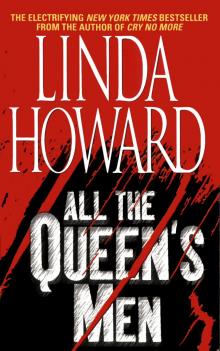 All the Queen's Men
All the Queen's Men Midnight Rainbow
Midnight Rainbow Diamond Bay
Diamond Bay Dying to Please
Dying to Please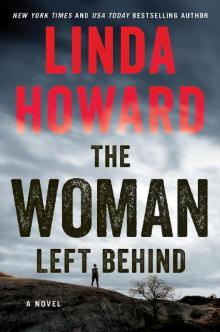 The Woman Left Behind
The Woman Left Behind Come Lie With Me
Come Lie With Me Drop Dead Gorgeous
Drop Dead Gorgeous To Die For
To Die For Ice
Ice Overload
Overload Shadow Woman
Shadow Woman Veil of Night
Veil of Night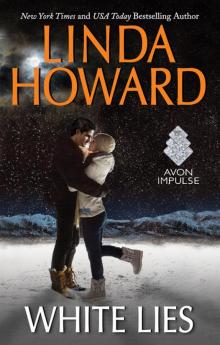 White Lies
White Lies Son of the Morning
Son of the Morning The Complete Mackenzies Collection
The Complete Mackenzies Collection Lake of Dreams
Lake of Dreams DeathAngel
DeathAngel Loving Evangeline
Loving Evangeline Burn
Burn Mackenzie's Magic
Mackenzie's Magic Against the Rules
Against the Rules Burn: A Novel
Burn: A Novel A Lady of the West
A Lady of the West Almost Forever
Almost Forever Open Season
Open Season Now You See Her
Now You See Her Prey
Prey Cry No More
Cry No More Sarah's Child
Sarah's Child Angel Creek
Angel Creek Death Angel
Death Angel Kill and Tell
Kill and Tell The Touch of Fire
The Touch of Fire Raintree: Inferno
Raintree: Inferno Killing Time
Killing Time Cover of Night
Cover of Night Tears of the Renegade
Tears of the Renegade Heartbreaker
Heartbreaker The Cutting Edge
The Cutting Edge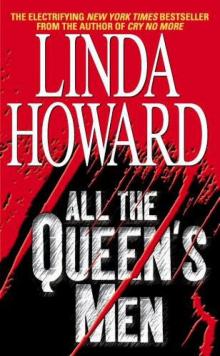 All The Queen's Men cs-2
All The Queen's Men cs-2 Veil of Night: A Novel
Veil of Night: A Novel Blood Born
Blood Born The Complete Mackenzie Collection
The Complete Mackenzie Collection Mackenzie's Magic m-4
Mackenzie's Magic m-4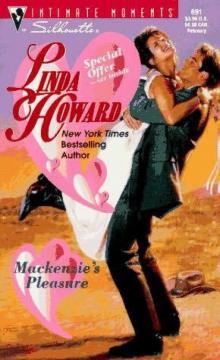 Mackenzie's Pleasure m-3
Mackenzie's Pleasure m-3 Raintree
Raintree A Game Of Chance m-5
A Game Of Chance m-5 Prey: A Novel
Prey: A Novel Lethal Attraction: Against the RulesFatal Affair
Lethal Attraction: Against the RulesFatal Affair The Raintree Box Set: Raintree: InfernoRaintree: HauntedRaintree: Sanctuary
The Raintree Box Set: Raintree: InfernoRaintree: HauntedRaintree: Sanctuary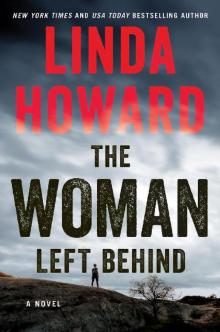 The Woman Left Behind: A Novel
The Woman Left Behind: A Novel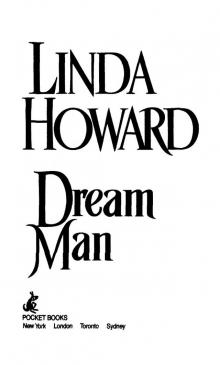 Dream Man
Dream Man Frost Line
Frost Line Kill and Tell cs-1
Kill and Tell cs-1 Shadow Woman: A Novel
Shadow Woman: A Novel Mackenzie's Mission
Mackenzie's Mission Strangers in the Night
Strangers in the Night Running Blind
Running Blind